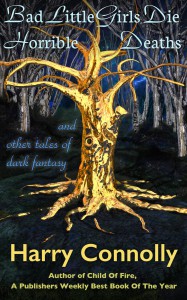So, there’s this annoying conversation that comes up in social media every few weeks that goes basically like this:
Person 1: “Writers who write in coffee shops are just hoping that someone will ask them what they’re writing.”
Person 2: “Yeah!”
Which is weird, right? You see people on their laptops at a cafe, and what you think is I can see them. That means they want to be seen.
Or maybe, and more insidiously: I can see them there. That means what they’re doing is a performance aimed at me.
In all seriousness, people talking shit about writers at Starbucks is a petty thing. It bugs me a little if I’m having a hard day because I’m one of those writers, but folks assuming that I’m there because I’m hoping to be interrupted?… well, I wonder if they’re really thinking clearly.
Also:
If you like big epic fantasy with lots of great female characters, check out Kate’s work.
Personally, I’ve been writing in coffee shops (mainly Starbucks, but not always) for 13 years. Thirteen also happens to be my son’s age. COINCIDENCE? Guess again.
When he was born, my wife’s family descended upon us. We had nine people in a two bedroom apartment–including a newborne, a teenager, and my wife’s elderly parents–that was already crowded with stuff. Writing at home became impossible, so I slipped out to the local Starbucks before everyone woke up and I did my work.
What I quickly discovered is that a) no, no one ever asks what you’re doing–In the 13 years I’ve been writing in cafes I’ve been asked about it three times[1]–and b) I got a lot more done than usual.
Home is where my distractions are. I’m a very distractible person, and the lure of the TBR pile, internet, TV, fridge, chores, whatever is powerful. Even more powerful are the voices of my wife and son; when they speak, my attention turns to them. I can’t help it. At the cafe, as long as I have my internet disabled (nowadays I use a program called Focus for that) my distractions are few[2].
As for hoping people will ask what I’m writing, let’s run that through a common sense check: Fantasy is about 6% of the market. Do I want to be interrupted in the middle of a thought by people who are 94% likely to be totally uninterested in what I do? And of the remaining 6%, how many are interested in my exact sort of fantasy? And those numbers look even worse when you acknowledge that they’re based on the assumption that everyone reads novels, which they don’t.
The answer is obvious. Starbucks is not a convention, where you get to meet admiring readers. It’s a place where you can ignore people and do some work.
Which is why a lot of people in different fields see cafes as a refuge where they can accomplish work. I have managed to sneak peeks at other people’s computers at those long Starbucks tables; what I mostly see is people writing code, not fiction. What’s more, if you click on Kate Elliot’s tweet up there, you’ll see more people talking about their reasons for slipping off to Starbucks to get stuff done.
But like I said: petty. In the specifics, anyway. In a more general sense, the twin notions that I can’t imagine a reason other than X, so X must be the reason and That person can be seen in this place doing X, so being seen must be the reason they’re doing it here are a genuine issue.
I’d like to think that most intelligent people recognize the problems with those sentences. I’d like to hope that most people understand, just to take an example, that just because (to take a not-so-random example) someone is wearing something sexy doesn’t mean they’re wearing it to please you.
And for those who have learned that specific lesson, they need to apply the principle more broadly.
[1] Two were asked dismissively, as in that other person had their laptop open to do REAL work. The third was when an old guy rapped me on top of my head with a folded up newspaper because he wanted to chat but I was wearing headphones. We didn’t chat.
[2] Not non-existent, but few. Very rarely someone with issues in their brain chemistry will distract me. Much more common are adorable tots. I don’t mind them at all. I like kids, and I’m happy to take a brief break to smile and wave at them, or to smile at their mortified parents when the kids act up.
Like what you just read? Please share!
